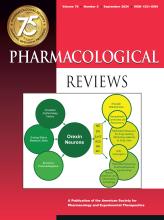Abstract
Cannabis is one of the oldest and widely used substances in the world. Cannabinoids within the cannabis plant, known as phytocannabinoids, mediate cannabis’ effects through interactions with the body’s endogenous cannabinoid system. This endogenous system, the endocannabinoid system, has important roles in physical and mental health. These roles point to the potential to develop cannabinoids as therapeutic agents while underscoring the risks related to interfering with the endogenous system during nonmedical use. This scoping narrative review synthesizes the current evidence for both the therapeutic and adverse effects of the major (i.e., Δ9-tetrahydrocannabinol and cannabidiol) and lesser studied minor phytocannabinoids, from nonclinical to clinical research. We pay particular attention to the areas where evidence is well established, including analgesic effects after acute exposures and neurocognitive risks after acute and chronic use. In addition, drug development considerations for cannabinoids as therapeutic agents within the United States are reviewed. The proposed clinical study design considerations encourage methodological standards for greater scientific rigor and reproducibility to ultimately extend our knowledge of the risks and benefits of cannabinoids for patients and providers.
Significance Statement This work provides a review of prior research related to phytocannabinoids, including therapeutic potential and known risks in the context of drug development within the United States. We also provide study design considerations for future cannabinoid drug development.
Footnotes
- Received November 10, 2023.
- Revision received May 30, 2024.
- Accepted June 3, 2024.
This work was partially supported by National Institutes of Health National Institute on Drug Abuse [Grants R01DA047296 and R01DA057252] (to Z.D.C) and the Semel Charitable Foundation (to Z.D.C.).
The authors declare that they have no competing interests or disclosures with this publication. Outside of this work, Z.D.C. reports receiving study drug from Canopy Growth Corp and True Terpenes and study-related materials from Storz & Bickel. Z.D.C.’s research is funded by grants from the NIH, California Department of Cannabis Control, Center for Medicinal Cannabis Research, and the California Highway Patrol.
- Copyright © 2024 by The American Society for Pharmacology and Experimental Therapeutics
PharmRev articles become freely available 12 months after publication, and remain freely available for 5 years.Non-open access articles that fall outside this five year window are available only to institutional subscribers and current ASPET members, or through the article purchase feature at the bottom of the page.
|






